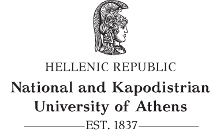NEWS
BIODIVERSITY: 17 SPECIES OF EUROPEAN PLANTS BELIEVED TO BE EXTINCT RECOVERED
An international team of researchers carried out a detailed investigation of 36 European endemic plant species classified as "extinct", discovering that 17 were not extinct at all. Of these, three species have actually been rediscovered as a result of field research and two have been found preserved in European botanic gardens and seed banks.
The results of the study were published in the journal Nature Plants in an article entitled “Seventeen "extinct" plant species back to conservation attention in Europe” - URL: https://dx.doi.org/10.1038/s41477-021-00878-1
The research was coordinated by Prof. Thomas Abeli and Dr. Giulia Albani Rocchetti (Roma TreUniversity, Italy) and involved researchers from a large network, including research institutions, universities, museums and botanic gardens (Dr. Zoltán Barina - WWF Hungary, Dr. Ioannis Bazos - National and Kapodistrian University of Athens, Dr. David Draper - Museo Nacional de Història Natural e da Ciência (Lisboa, Portugal) and University of British Columbia (Vancouver, Canada), Dr. Patrick Grillas - Tour du Valat (Arles, France), Prof. José Maria Iriondo - Rey Juan Carlos University (Madrid, Spain), Dr. Emilio Laguna - Wildlife Service - CIEF (Valencia, Spain), Prof. Juan Carlos Moreno-Saiz - Autonomous University of Madrid and Center for Research on Biodiversity and Global Change (Madrid, Spain), Dr. Fabrizio Bartolucci - University of Camerino (Italy).
Among the 17 species a very exceptional case may be represented by the Portuguese endemic species, Armeria arcuata, believed to be extinct for decades and preserved at the Utrecht University Botanic Gardens. Although the rehabilitation of these species is certainly good news, we must not forget that another 19 species are probably lost forever. It is therefore important to prevent extinctions.
This research highlights that entities deemed to be extinct for many decades can be rediscovered thanks to continuous field monitoring, supported by universities, museums, botanic gardens and seed banks.
Thanks to this study, Europe "recovers" biodiversity, an important step towards achieving the international targets set by the Convention for Biological Diversity (CBD) and the United Nations 2030 Agenda for Sustainable Development.
